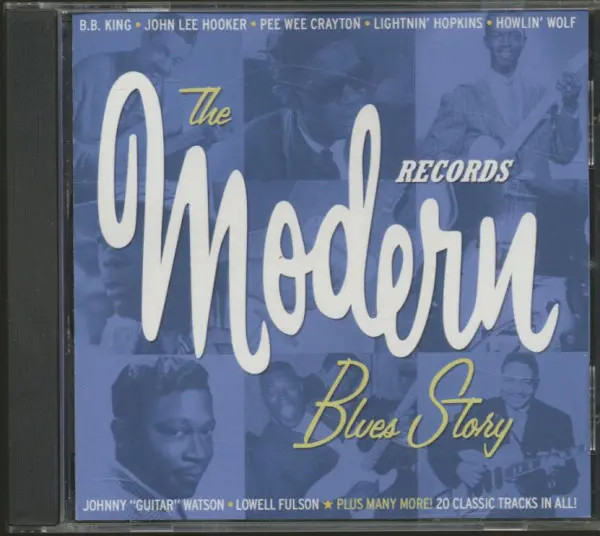Early rock & roll derived the lion's share of its en-ergy and inspiration from black music. In the Fif-ties "rock & roll" was often taken to be simply a new name for "rhythm & blues," or "R&B," the music industry's generic term for any popular music primarily produced and consumed by African-Americans.
The R&B scene of the early Fifties was diverse enough to accommodate the suave stylings of a Charles Brown, the earthy, fiery Chicago blues of a Muddy Waters and everything in between. But when one thinks today of R&B in the early Fifties, it's usually the vocal groups that first come to mind—the Drifters, the Dominoes, the Midnighters, so many more. During those years, the years just before rock & roll became a worldwide phenomenon, a new en-ergy came into black vocal group music. In the For-ties it had been dominated by the Ravens, the Orioles and other groups that sang love songs sweet and low, after the fashion of the Ink Spots, who became world famous just before World War II.
Around 1950, though, certain R&B vocal groups began moving away from the sweet tones of the Ink Spots' Bill Kenny and toward something much closer to the sanctified shouts of such contemporary gospel groups as the Soul Stirrers, the Pilgrim Trav-elers and the Swan Silvertones. For some in the black community, this was tan-tamount to blasphemy. The new mix of gospel-style singing, sensual R&B rhythms and risque lyrics on such trend-setting records as "Honey Love" by the Drifters and "Work with Me Annie" by the Mid-nighters was as outrageous to conservatives as the rap excesses of 2 Live Crew would be some thirty-five years later.
(When Sam Cooke launched his pop career in 1957 after six years of singing pure gospel with the Soul Stirrers, the schism among his fans was deeper and more permanent even than what happened among Bob Dylan's folk fans after he went electric in 1965.) For young R&B fans, though—blacks and whites—this was electrifying stuff...
Early rock & roll derived the lion's share of its en-ergy and inspiration from black music. In the Fif-ties "rock & roll" was often taken to be simply a new name for "rhythm & blues,"...
read more »
Close window
Rhythm And Blues
Early rock & roll derived the lion's share of its en-ergy and inspiration from black music. In the Fif-ties "rock & roll" was often taken to be simply a new name for "rhythm & blues," or "R&B," the music industry's generic term for any popular music primarily produced and consumed by African-Americans.
The R&B scene of the early Fifties was diverse enough to accommodate the suave stylings of a Charles Brown, the earthy, fiery Chicago blues of a Muddy Waters and everything in between. But when one thinks today of R&B in the early Fifties, it's usually the vocal groups that first come to mind—the Drifters, the Dominoes, the Midnighters, so many more. During those years, the years just before rock & roll became a worldwide phenomenon, a new en-ergy came into black vocal group music. In the For-ties it had been dominated by the Ravens, the Orioles and other groups that sang love songs sweet and low, after the fashion of the Ink Spots, who became world famous just before World War II.
Around 1950, though, certain R&B vocal groups began moving away from the sweet tones of the Ink Spots' Bill Kenny and toward something much closer to the sanctified shouts of such contemporary gospel groups as the Soul Stirrers, the Pilgrim Trav-elers and the Swan Silvertones. For some in the black community, this was tan-tamount to blasphemy. The new mix of gospel-style singing, sensual R&B rhythms and risque lyrics on such trend-setting records as "Honey Love" by the Drifters and "Work with Me Annie" by the Mid-nighters was as outrageous to conservatives as the rap excesses of 2 Live Crew would be some thirty-five years later.
(When Sam Cooke launched his pop career in 1957 after six years of singing pure gospel with the Soul Stirrers, the schism among his fans was deeper and more permanent even than what happened among Bob Dylan's folk fans after he went electric in 1965.) For young R&B fans, though—blacks and whites—this was electrifying stuff...





